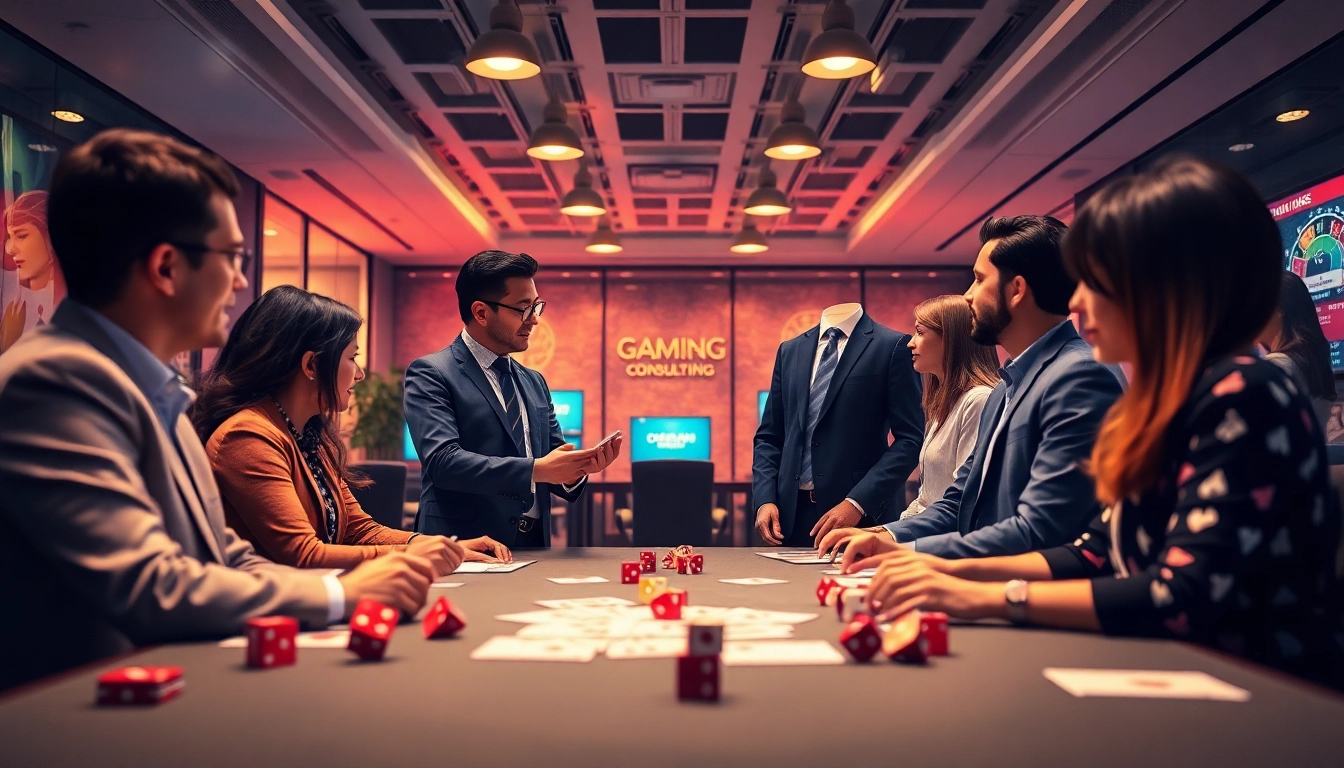Understanding Strategic Consulting in the Gaming Sector
What is Strategic Consulting?
Strategic consulting is a specialized form of consulting focused on providing high-level advice to organizations, helping them to make informed decisions that enhance their operational efficiency, market positioning, and overall performance. It typically involves thorough analyses of a company’s strengths, weaknesses, opportunities, and threats (SWOT), as well as insights into market trends and consumer behavior. In the realm of gaming, strategic consulting plays a pivotal role by not only guiding game developers in their ideation and production processes but also assisting them in navigating the complex business landscape of the gaming industry.
Why is Strategic Consulting Essential for Game Development?
The gaming industry is characterized by rapid technological advancements, changing consumer preferences, and intense competition. Strategic consulting provides game development companies with the tools they need to adapt and thrive in this dynamic environment. Here are several reasons why strategic consulting is essential:
- Market Insights: Consulting firms gather and analyze vast amounts of market data, enabling game developers to understand emerging trends and capitalize on opportunities.
- Risk Management: Game development involves significant financial risk, and consultants help companies assess and mitigate these risks through informed decision-making.
- Resource Allocation: Effective consulting guides developers in allocating resources strategically, ensuring investments are made wisely and yield the highest returns.
- Innovation Drive: New ideas are vital for success in the gaming world. Consultants encourage innovation by fostering creative strategies that align with business objectives.
Key Players in Strategic Consulting for Gaming
The key players in strategic consulting for the gaming industry include a mix of established consulting firms and specialized startups. Major global firms like McKinsey & Company and Boston Consulting Group offer broad consulting services and possess extensive resources. On the other hand, niche firms such as SuperData Research and Newzoo focus specifically on gaming analytics, providing insights that cater to the industry’s unique characteristics.
Common Challenges in Gaming Strategic Consulting
Identifying Market Trends and Consumer Behavior
One of the primary challenges in strategic consulting for gaming lies in accurately identifying market trends and predicting consumer behavior. The gaming market is constantly evolving, with new technologies and platforms emerging regularly. For example, the rise of mobile gaming has transformed player demographics and spending patterns. To help clients stay ahead, consultants must leverage data analytics to not just identify trends but also to project them into the future.
Managing Risk in Gaming Investments
Investing in a new game or technology carries inherent risks. Consultants play a crucial role in helping developers understand these risks through comprehensive evaluations of potential game concepts, market conditions, and competitive landscapes. Developing robust risk assessment frameworks and employing data-driven approaches can help mitigate these risks effectively.
Aligning Teams and Resources for Optimal Outcomes
Effective strategic consulting involves not only advising on decisions but also ensuring that the insights translate into actionable strategies within organizations. This alignment can be challenging in the gaming sector, where teams may be cross-functional, involving creative, technical, and business-oriented personnel. Strong leadership from consultants is essential to unify diverse teams towards a common goal.
Best Practices for Effective Strategic Consulting
Utilizing Data-Driven Insights
Data is the backbone of strategic consulting. The effective use of analytics helps consultants provide objective insights rather than relying on intuition alone. By employing advanced analytics tools and methodologies, consultants can unearth critical insights about player engagement, market demands, and operational efficiencies, driving informed decision-making across various departments.
Encouraging Innovation Through Collaboration
Strategic consultants must foster a culture of collaboration among game development teams. By creating environments conducive to brainstorming and dialogue, teams are more likely to produce innovative solutions. Techniques such as design thinking workshops can stimulate creative problem solving, encouraging teams to explore unconventional ideas that can lead to breakthrough games.
Creating Sustainable Strategies for Long-Term Engagement
The gaming industry thrives on player engagement and retention, making it critical for consultants to develop strategies focused on sustainability. This involves not only creating compelling content but also ensuring ongoing player involvement through continuous updates, community building, and customer feedback loops. By helping developers build long-term engagement strategies, consultants ensure client success well beyond initial launches.
Implementation Steps for Strategic Consulting
Developing a Comprehensive Consulting Plan
Consulting isn’t just about advice; it’s about executing a detailed plan. A comprehensive consulting plan should start with a clear understanding of client needs, objectives, and existing capabilities. The plan should outline goals, objectives, methods, timelines, and required resources, creating a roadmap for successful consulting engagements.
Engaging Stakeholders in the Consulting Process
To ensure successful outcomes, engaging all stakeholders—ranging from executive leadership to individual team members—is critical. Regular communication, feedback sessions, and collaborative workshops create ownership of the consulting process, increasing the likelihood of strategy adoption. Stakeholder engagement is crucial for aligning expectations and ensuring everyone is on board with the change initiatives.
Measuring Success and Refining Strategies
Consulting does not end upon delivering recommendations; it extends into implementation and assessment. Setting up performance metrics at the beginning allows teams to track progress effectively. These metrics should measure various indicators such as player retention rates, revenue growth, and project timelines. Continuous monitoring allows for fine-tuning strategies based on performance results.
Performance Metrics in Gaming Strategic Consulting
Key Performance Indicators to Track
Key performance indicators (KPIs) are vital in evaluating the success of strategic consulting initiatives in gaming. Common KPIs include:
- Player Retention Rates: Monitoring how many players continue to engage with a game over time can provide insights into how well the game meets player expectations.
- Revenue Growth: Assessing revenue streams helps determine the profitability of game launches and ongoing monetization strategies.
- Market Reach: Understanding how many players are engaging with a game relative to its target demographic helps to gauge marketing effectiveness.
- Customer Feedback Metrics: Analyzing player reviews and satisfaction scores provides qualitative data on player experience and areas needing improvement.
Evaluating the Impact of Consulting on Game Success
The ultimate measure of a strategic consultant’s impact on a gaming company is the game’s success in the market. Evaluating the financial performance, player growth metrics, and overall reception can provide a comprehensive view of how effective the consulting engagement was in achieving outlined objectives.
Adjusting Strategies Based on Performance Results
The gaming landscape is not static, and neither should be the strategies developed. Effective consultants continuously analyze results and adjust strategies based on observed performance. Whether it’s pivoting game mechanics, marketing strategies, or further developing content, maintaining agility in strategy implementation is crucial for long-term success.



